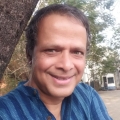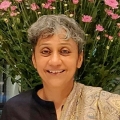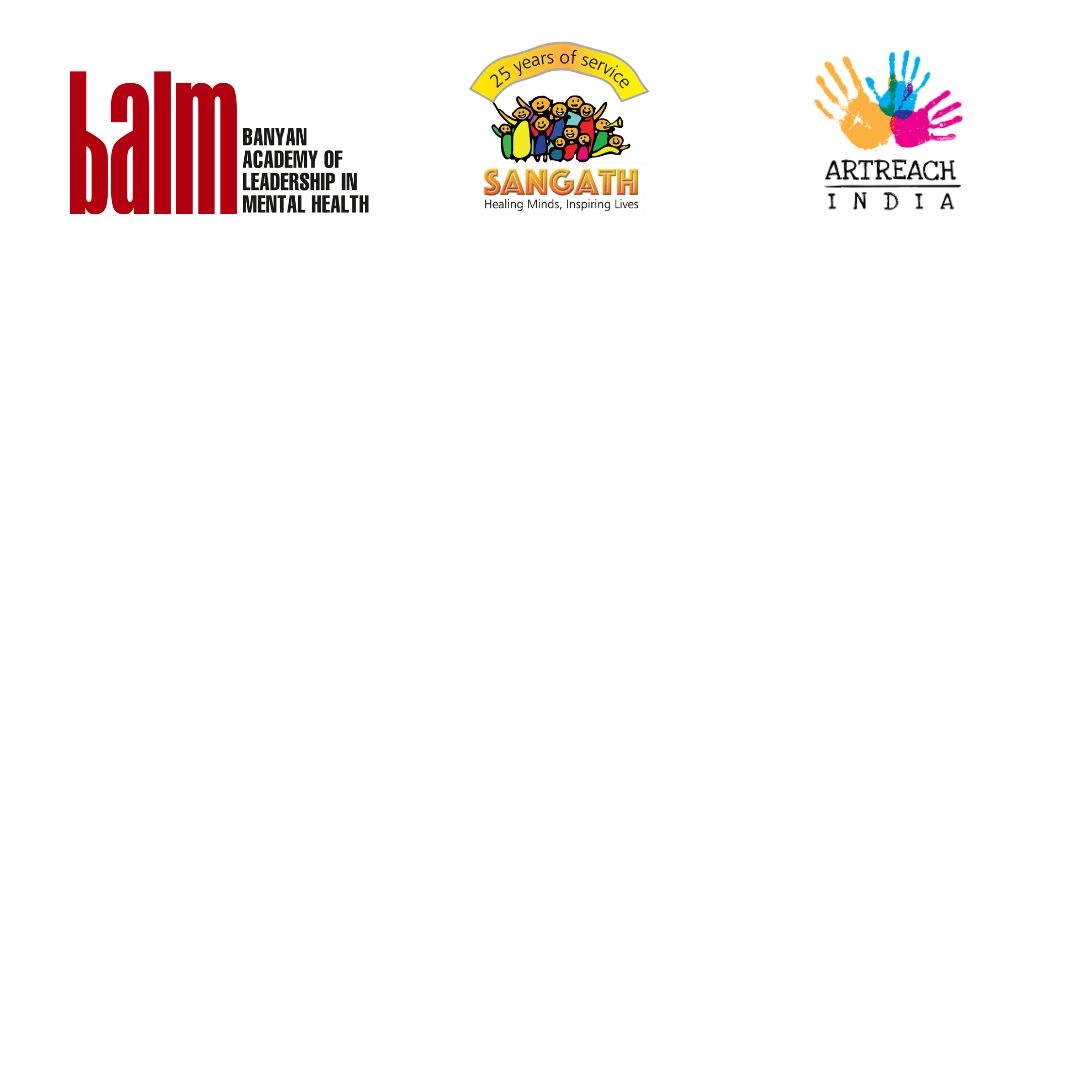Creativity, Innovation and Mental Health
VIEW EVENT DETAILS
All art - written, visual, spoken - is a means of expressing what it means to live. A single piece of art can transform the life of both the artist and the beholder, putting into tactile form the anxieties that are difficult to speak about. And yet, art is seen as separate from the more biomedical forms of healing - hospitals, medication, diagnosis. South Asia has a long history of an overly medical approach to care, and in its extreme, has meant the forced hospitalisation of mentally ill people (who may not receive adequate diagnoses or care). Creativity has been closely tied to South Asia’s history too, which each of its citizens inherits: from Kabir and Mirabai’s poetry to Islamicate calligraphy.
In the third part of our series on mental health, we look at creativity and its impact on mental health, combining these two to analyse art therapy as a means of care; and the curative impact of art therapy, and art as therapy. An art therapist is a specifically trained psychologist who uses art - painting, music, collages - with the client to help them express and move towards healing. The first art therapist ever, Adrian Hill in the 1940s, was a war sketch artist, who then painted about his experiences with tuberculosis, explained the potential of art therapy in his book Art versus Illness, and then was hired as the first art therapist at a hospital in the UK. Art therapists are very few in number in south Asia - “generally non-existent,” outside the realm of basic occupational therapy, but studies have repeatedly shown the healing effect art therapy has - on those with a broad spectrum of conditions including young people with autism, and older people with dementia. Studies have also shown art therapy is particularly effective in south Asia, perhaps because of its rich history of art and creativity.
On the 25th of April, 2023, join us as we bring together a panel with Jerry Pinto, author and translator; Pattie Gonsalves, Project Director at Sangath and Dr Lakshmi Sankaran, Deputy Director (training and research), Banyan Academy of Leadership in Mental Health. The conversation will be moderated by Bhargavi Davar, founder and managing trustee, Bapu Trust. The panel will look at creativity and mental health through two lenses. Firstly: the panelists will analyse the role of creativity and artistic practice and how it can lighten suffering and transform lives. The panelists will also look at whether creative practice can open up new types of conversations about mental health, lacking in a country and region where mental health access remains low, and stigma remains high. Secondly, the panel will look at art therapy as a legitimate, innovative care technique, and evaluate its merits and potential as a type of mental healthcare.
Art can change your life - we will look at this statement closely in this session, focusing on the role art plays to improve mental well-being; the ways in which art has led to therapeutic breakthroughs and changed how clients approach problems; and particularly in South Asia, what the varied traditions and uses of art as therapy are.
If you have any questions, please write in to us and we will share them with the panelists during the Q and A session at the end of the webinar.

Jerry Pinto is a renowned writer, editor, and translator with multiple awards and accolades to his credit. His novel Em and the Big Hoom won the Crossword Prize, the Hindu Lit for Life Award, and the Sahitya Akademi Award, while Murder in Mahim won the Valley of Words Award for Fiction. His latest novel, The Education of Yuri, has received universal acclaim. As a translator, he has translated several path-breaking works from Indian literature into English. He has also won the National Award for Best Writing in Cinema and authored children's books and two books of poetry. Additionally, he serves on the boards of MelJol and the People's Free Reading Room and Library. He holds an LLB degree from Government Law College, Mumbai, and a degree in the humanities from Elphinstone College.

Dr Lakshmi Sankaran is deputy director, training and research, at Banyan Academy of Leadership in Mental Health, with a background in mental health education and documentation. Her journey began at Tata Institute of Social Sciences, Mumbai, and National Institute of Mental Health and Neurological Sciences (NIMHANS) Bengaluru, where she earned both an MPhil and PhD in psychiatric social work. She was a family counselor at TTK Hospital, Chennai’s addiction treatment centre and a trainer in HIV/AIDS related counseling. She was a faculty member at Christ University Bangalore’s department for applied psychology. She helped develop training manuals on substance use interventions for the United Nations Office on Drugs and Crime, minimum standards of care in addiction treatment; addressing risk factors for non-communicable diseases (for the World Health Organization; NIMHANS and the Indian government) and course material for Indira Gandhi National Open University's M.A. in Counselling and Family Therapy. She has a diploma in arts-based therapy from the Bapu Trust and a certification in Open Dialogue (a process model of mental health care).

Dr Pattie Gonsalves is Project Director at Sangath, an Indian mental health research non-profit where she directs a portfolio of participatory youth research projects and digital innovations on depression, anxiety and suicide prevention supported by Wellcome Trust, Comic Relief and Grand Challenges Canada. She holds a PhD from the University of Sussex and MSc from the University of Oxford and brings expertise in engaging youth with lived experience in programme development, research and advocacy. Pattie founded the ‘It’s Ok To Talk’ national public engagement campaign recognised by Facebook as one of 2019’s top 10 international mental health youth projects. She presently also leads Outlive, a suicide prevention programme addressing urban youth suicides and Baatcheet, a study focused on addressing depression and anxiety among young people.

Bhargavi Davar, PhD, is a childhood survivor of the Indian mental asylums. She identifies as a person with a psychosocial disability having endured long-term trauma from those experiences. She completed her PhD on the ethical and epistemological foundations of the mental and behavioural sciences and the possibility of human freedom within those disciplines. Her work has been on gender, culture and disability studies, and the basis for the modern mental health policy frames in Asia. She has several published works, including (co-author), Psychoanalysis as a Human Science (Sage 1995), Mental health of Indian women (Sage 1999), (ed.) Mental health from a gender perspective (Sage 2001), Gendering mental health: Knowledges, identities, institutions (OUP 2015). She is founder and managing trustee of the Bapu Trust; founder and director at its training institution, Bapu Foundation, and executive director at Transforming Communities for Inclusion, a global organisation with a vision for community inclusion. Her work through these organisations is to advocate for the full realization of all human rights for persons with psychosocial disabilities, especially the right to live in the community.
Outreach Partners

